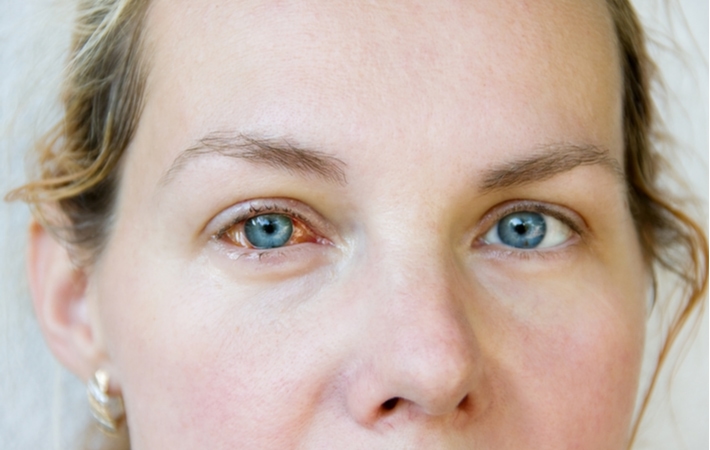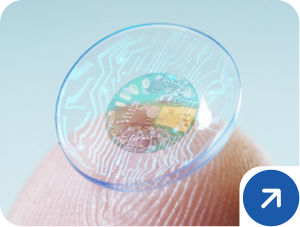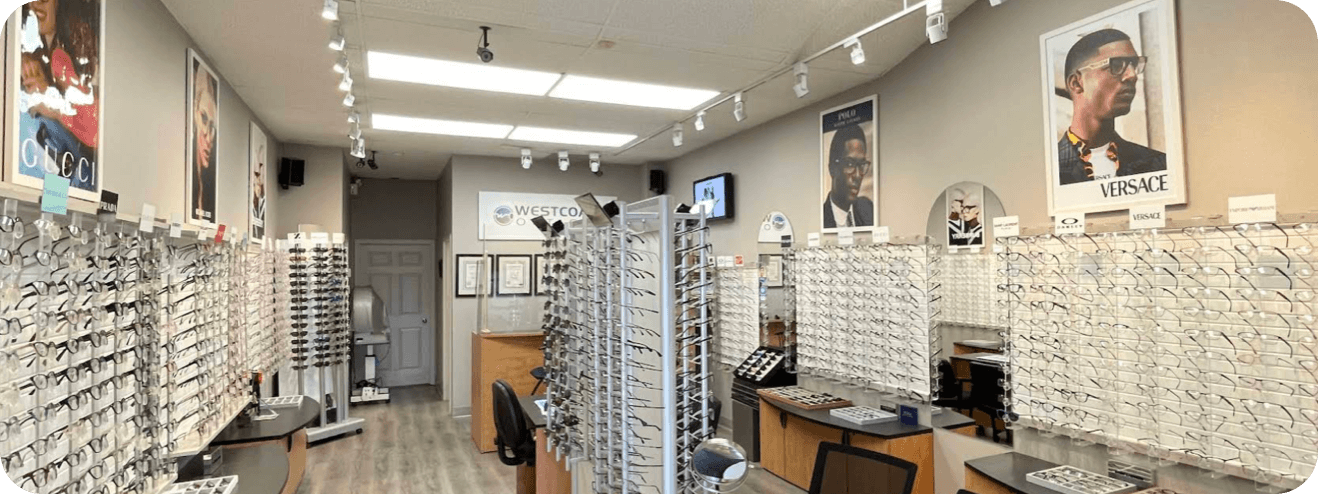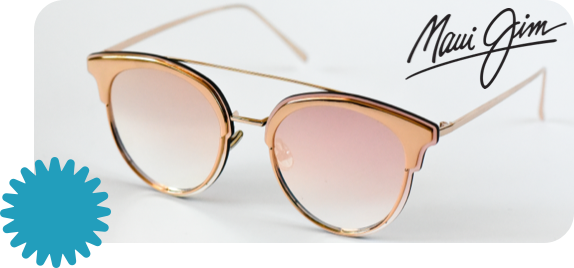Contacts are convenient, but they aren’t a grab-and-go option—they require diligent care and maintenance. Your Contact Lens Fitter will teach you everything you need to know about contact lenses when you get a new prescription. One question you may have is if you can sleep with contact lenses?
Continue reading to learn more about contact lens safety, including if you can wear your contact lenses while you sleep.
What to Know About Contact Lenses
Contact lenses are great alternatives to glasses. They help correct refractive errors like myopia, hyperopia, and astigmatism, and presbiopia. They come in different materials, such as soft plastic for comfort and firm plastics for durability and clear vision. This specialty made plastic allow for oxygen to pass through the lenses into our eye.
If you’re interested in contact lenses, they have several benefits, including:
- More peripheral vision
- They don’t fog up or get wet when it’s cold or raining
- They don’t get in your way during physical activity
While contact lenses can be a great option for your visual needs, they require more diligent care than glasses. You can risk potential eye infections if you don’t clean your contact lenses well. A common topic of discussion with contact lenses is if you can wear them while you sleep.
Can You Sleep With Your Contact Lenses?
It’s tempting to sleep with your contact lenses after a long day. You may feel like taking your contact lenses out and cleaning them is too much work.
Many people feel like this—previous research found that 88% of adults engage in at least one risky behaviour with their contact lenses. One of the most common risks people take is sleeping or napping with their contacts in.
You shouldn’t sleep with your contact lenses in because of the risk of infections. You’re 6 to 8 times more likely to get an eye infection when wearing your contact lenses while you sleep.
What About Specialized Contact Lenses?
Some contact lenses can be worn overnight, like extended lenses. Other contact lenses like orthokeratology (ortho-k) lenses are only worn at night because they reshape your cornea while you sleep. Can you wear specialized lenses while you sleep?
The Food and Drug Administration (FDA) recommends no one wears their contact lenses overnight unless your optometrist has specifically prescribed your lenses for this purpose. Wearing contact lenses overnight increases your risk of infection and stresses the cornea because less oxygen can reach the eye. This can cause eye dryness.

What Is Your Risk of Infection?
Even if your contact lenses are for overnight use, you risk eye infections. These infections can cause damage to your cornea. Some possible eye infections include bacterial keratitis, acanthamoeba keratitis, and fungal keratitis.
Bacterial Keratitis
Bacterial keratitis is an infection of your cornea, the clear covering of the coloured part of your eye. People who wear contact lenses typically develop this infection. The bacteria causing bacterial keratitis is found in nature and on your skin.
Your risk of bacterial keratitis increases when you wear contact lenses, especially if you don’t take care of them or wear your lenses overnight.
Not disinfecting your lenses or lens case, using contaminated contact lens solution, or rinsing your contact lenses in water can lead to this infection. Wearing your contact lenses overnight or reshaping contacts like ortho-k lenses can cause bacterial keratitis.
Remove your contact lenses and contact your eye doctor immediately if you experience any bacterial keratitis symptoms, such as:
- Blurred vision
- Excessive tearing
- Eye discharge
- Eye discomfort
- Eye redness
- Light sensitivity
Acanthamoeba Keratitis
Acanthamoeba keratitis (AK) is a rare but serious eye infection. This infection can cause permanent vision loss.
Many AK cases occur in contact lens users, especially those taking poor care of their lenses. Your risk of AK is higher if you don’t store or handle your lenses properly, disinfect your lenses well, or swim or shower in your lenses.
Remove your contact lenses and contact your optometrist right away if you experience any symptoms of AK, including:
- Blurred vision
- Excessive tearing
- Eye discomfort
- Eye redness
- Light sensitivity
- The sensation of something in the eye
Fungal Keratitis
Fungal keratitis is an infection of your cornea caused by bacteria. If left untreated, this infection can lead to severe vision loss. Improper use of your contact lenses increases your risk of fungal keratitis.
Remove your contact lenses and contact your eye doctor as soon as possible if you experience any symptoms of this infection, including:
- Blurred vision
- Excessive tearing
- Eye discomfort
- Eye redness
- Light sensitivity
- The sensation of something in the eye
Contact Lens Tips
While contact lenses are a great alternative to glasses, they require daily care and maintenance. You can prevent irritation and potential infections by handling and caring for your contact lenses properly.
Your licensed eye-care professional will give you instructions on how to care for your lenses, but the Canadian Association of Optometrists recommends the following tips to protect your eye health and vision:
- Wash your hands thoroughly with soap and water for 20+ seconds and pat dry with a lint-free towel.
- Always discard any leftover contact lens solution remaining in the case after each use.
- Only use the contact lens solution prescribed by your contact lens fitter.
- Don’t use any eye medications or eye drops without consulting with your optometrist
- Avoid sleeping or napping while wearing your contacts unless specifically instructed
- Remove, clean, & disinfect your contact lenses on your recommended schedule
- Wear your contact lenses according to their wear schedule.
Remember that your licensed contact lens fitter is here to help with your contact lens needs. They can address any questions or concerns you may have about your prescription and lenses.
Contact your Optometrist or Optician if you have any concerns about your contact lenses.















